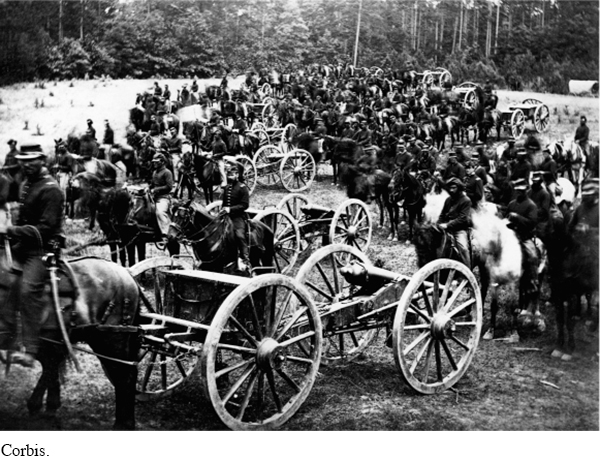The Government and the Economy
When the war began, the United States had no national banking system, no national currency, and no federal income tax. But the secession of eleven slave states cut the Democrats’ strength in Congress in half and destroyed their capacity to resist Republican economic programs. The Legal Tender Act of February 1862 created a national currency, paper money that Northerners called “greenbacks.” With the passage of the National Banking Act in February 1863, Congress established a system of national banks that by the 1870s had largely replaced the antebellum system of decentralized state banks. Congress also enacted a series of sweeping tax laws.

428
The Republicans’ wartime legislation also aimed at integrating the West into the Union. In May 1862, Congress approved the Homestead Act, which offered 160 acres of public land to settlers who would live and labor on it. The Homestead Act bolstered western loyalty and in time resulted in more than a million new farms. The Pacific Railroad Act in July 1862 provided massive federal assistance for building a transcontinental railroad that ran from Omaha to San Francisco when completed in 1869. Congress further bound East and West by subsidizing the Pony Express mail service and a transcontinental telegraph.
Congress also created the Department of Agriculture and passed the Land-